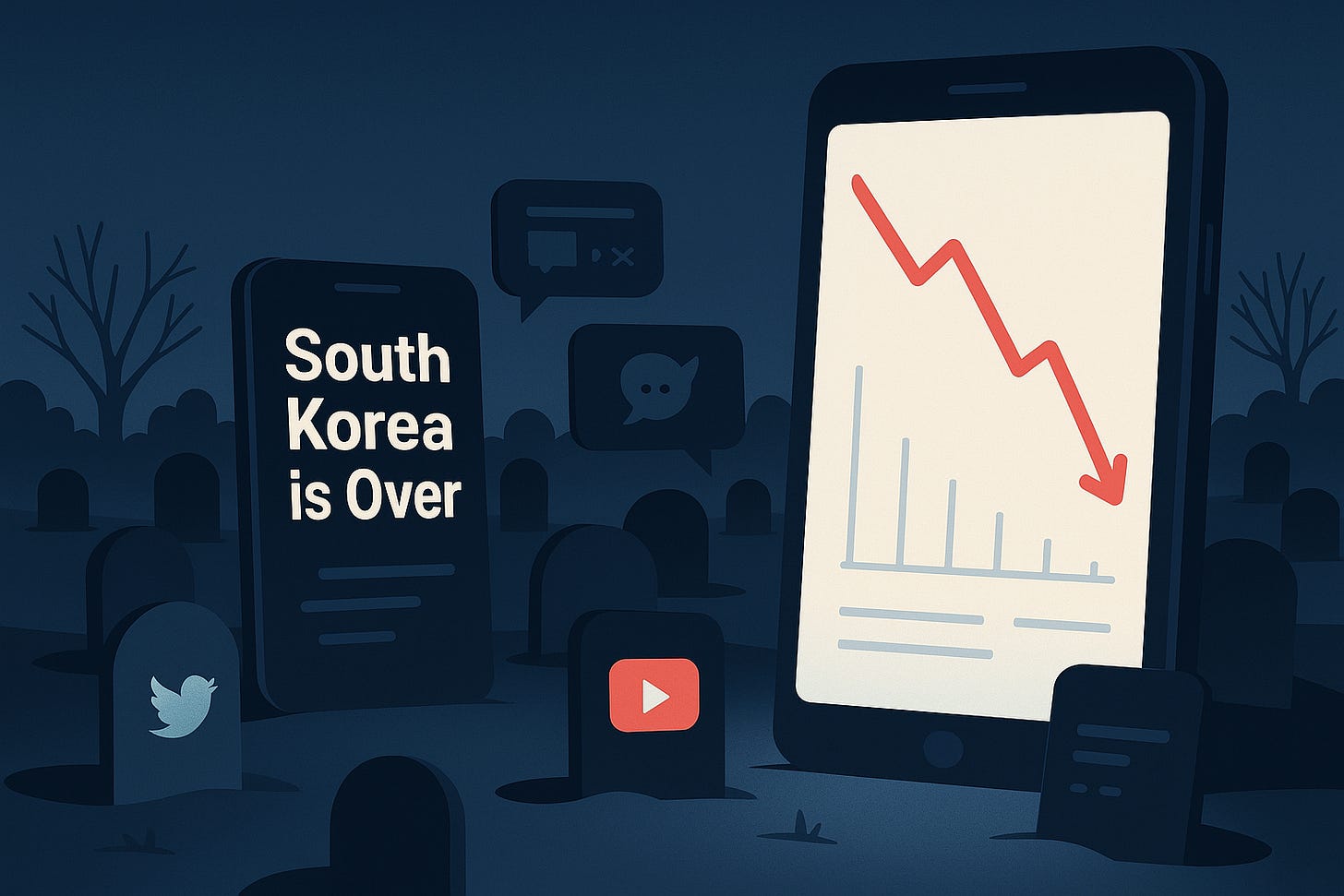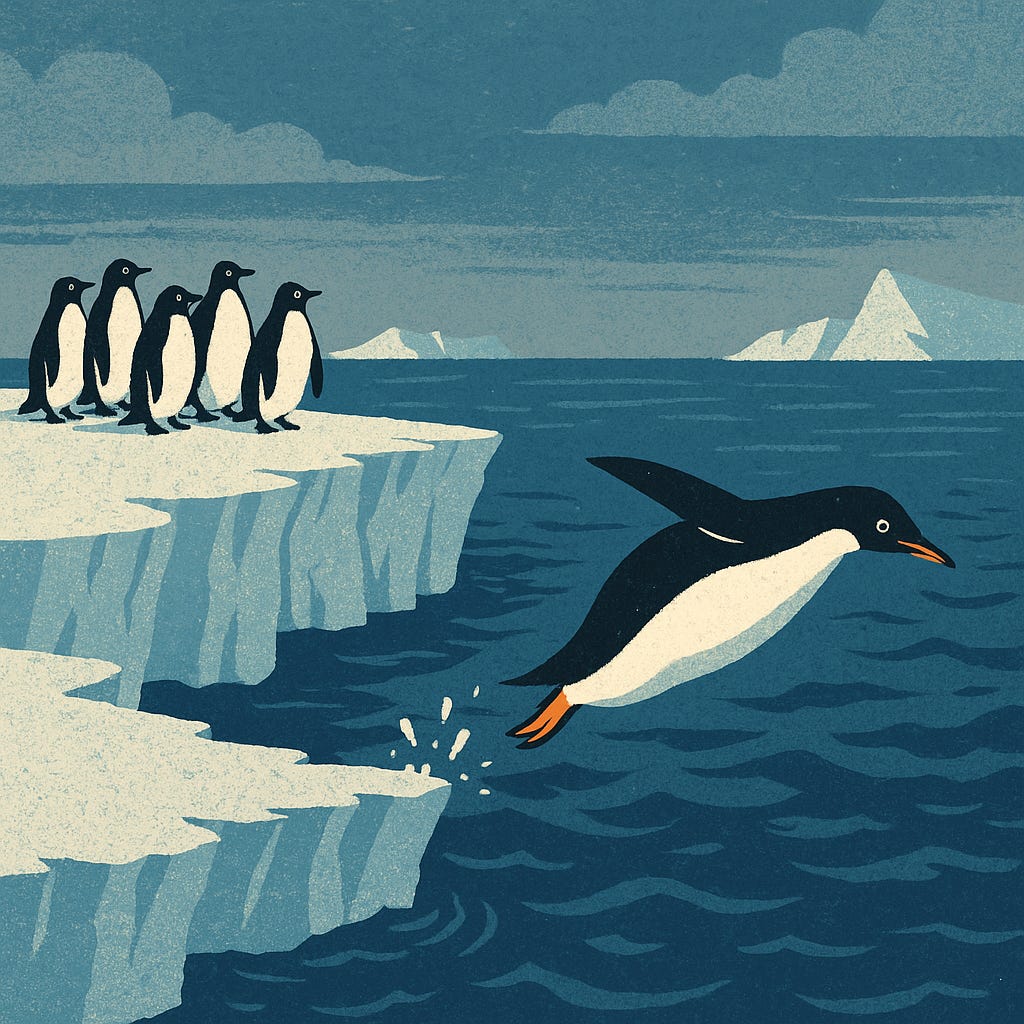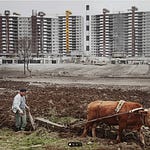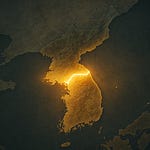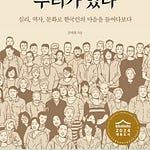Bonus Audio: Prefer listening? I created a podcast version using NotebookLM, with extra insights and stories that didn’t make the post. Just hit play!
This is Part 12 of the series The People’s Mandate: Korea’s Democratic Edge, a special miniseries within Growing Up in Korea (Part 22).
The Internet Has Pronounced Korea Dead
If you only went by what you see online, you’d think South Korea was already gone.
There’s a YouTube video titled “South Korea is Over” that has been watched by over 13 million people. A recent viral tweet reminded everyone to "remember these folks about to go extinct" whenever they encounter racism from a Korean.
For anyone looking from the outside, the evidence for this collapse seems overwhelming.
The core of it?
People in South Korea are just not having babies. The internet has diagnosed the illness and signed the death certificate.
And here’s the uncomfortable part: this “extinction” narrative isn’t just speculation. It’s rooted in some very real, very scary numbers.
The Grim Math That Fuels the Fire
The "extinction" narrative isn't just a feeling; it's backed by stark data. In 2006, Oxford demographer David Coleman first warned that South Korea could be the first country to vanish.
Back then, the fertility rate was 1.13. Today, it’s 0.72, the lowest in the world and less than half of what’s needed to maintain a stable population.
The projections are the stuff of dystopian films:
By 2072: The population could fall from 51 million to just 36 million.
By 2085: For every 100 working-age people, there could be 165 seniors to support.
This isn’t just an abstract economic problem. It’s a question of whether a society’s fundamental systems, such as pensions, healthcare, and defense, can survive when the demographic pyramid flips upside down.
If you can read Korean, check out the population dashboard created by Statistics Korea.
It lets you explore how South Korea’s population has changed over time and what it looks like now, from multiple angles.
"Hell Joseon," the Internal Diagnosis
Before the rest of the world caught on, Koreans had already coined a term for their own predicament: “Hell Joseon” (헬조선).
It’s a bitter portmanteau of “Hell” and the name of Korea’s last dynasty, and it’s how many young people describe the reality of their lives:
A society where buying a small apartment feels like a fantasy, no matter how hard you work.
A place where the cost of a child's education can financially cripple a family.
A system where the social ladder often feels like it's greased with inherited privilege, not hard-earned merit.
In fact, before the world points at Korea and predicts its collapse, Koreans have been saying the same thing for years, only with more feeling.
As author Hong Dae-seon wrote in his book The Birth of Koreans (한국인의 탄생):
“Since I was young, I’ve heard ‘Korea is finished’... so often that now I feel nothing when I hear it.
The Plot Twist: From Extinction to "Humanity's Adventure"
So, the case is closed, right? Not quite.
Here’s the plot twist.
Coleman, the same academic, who delivered the original prophecy of doom, now calls Korea “on the front line of humanity’s adventure.”
His point is that if Korea can figure out how to navigate this, whether through technology, social innovation, or a new approach to community, it could become a blueprint for the rest of the aging world.
Some experts go further, predicting Korea might become what’s known in business as the First Penguin.
In nature, penguins hesitate at the edge of the ice, wary of predators lurking in the water. Eventually, one jumps in first—risking death, but also gaining first access to food. If it survives, the others follow.
Korea isn’t volunteering for this leap. Its demographics are shoving it into the water. Once in, it may have no choice but to innovate faster than any other nation.
What “First Penguin” Could Mean for Korea:
Automation & Robotics: Filling the labor gap with robots, becoming a global leader in industrial automation out of necessity, not choice.
A New Social Blueprint: Reinventing pensions, healthcare, and urban design for a society where half the population could be over 65.
A Post-Growth Economy: Using the crisis to break free from hyper-competition and focus on quality of life.
If it works, Korea could set the standard for thriving in an aging, shrinking world, turning demographic freefall into a model for the 22nd century.
Why I Think Korea Will Overcome
Tomorrow marks the 80th anniversary of Gwangbokjeol (광복절), the day Korea celebrates its liberation from a brutal and oppressive colonial past. To understand Korea's future, you have to appreciate its history of surviving the unimaginable.
This is a nation whose modern identity was forged in fire:
It rose from the absolute ruins of the Korean War.
Its people overthrew military dictatorships to win democracy.
During the 1997 Asian Financial Crisis, its citizens lined up to donate their own wedding rings and family heirlooms to help pay off a national IMF bailout. If you’d like to read my detailed piece on this, check out this article.
This isn't just resilience; it's the spirit of geukbok (극복). It’s a word that doesn't quite mean "conquest," but rather "to overcome." It’s about enduring, adapting, and finding a way through an impossible struggle.
As I’ve written before, this is the very reason KPop Demon Hunters resonates so deeply, even globally. Its power, like so much of Korean storytelling, comes from its embrace of contradiction. It’s not about a flawless hero vanquishing a simple evil. It’s about the messy reality of survival, the coexistence of good and evil within us, and the painful, beautiful triumph of enduring.
Many popular Western narratives are stories of conquest.
Korean narratives are often stories of overcoming.
And this brings us back to that uniquely Korean brand of pessimism we saw earlier. Let’s take a closer look at that quote from author Hong Dae-seon’s book, The Birth of Koreans (한국인의 탄생):
“Since I was young, I’ve heard ‘Korea is finished’ and ‘Koreans are hopeless’ so often that now I feel nothing when I hear it.
According to Koreans, there is no country as corrupt and incompetent as Korea, so it wouldn’t be strange if it collapsed right now. Unfortunately, Korea only ever pretends to be on the verge of collapse, repeatedly failing at the task of actually collapsing… The public health system is world-class, despite the supposedly evil healthcare workers... The police are supposedly rotten to the core, yet the country’s public safety is ranked among the best in the world… Koreans can spew a lifetime’s worth of insults about their own country and people in a single day, and still have time to finish all their work and take a break.”
Perhaps this time, too, Korea will fail at failing.
The Real Question
So how will Korea be remembered?
As a cautionary tale—the nation that argued online while working itself into extinction?
Or a pioneer—the First Penguin that showed the world how to live well with less?
Looking at its history, I know where I’m placing my bet.
I believe Korea will overcome this, too.
Coming up next on Growing Up in Korea:
Despite all its problems, what has held Korea together? We’ll go back to the very beginning, to the nation's founding myth and its core ideal: Hongik Ingan (홍익인간), meaning to broadly benefit all humankind.
Understanding Korea’s origin story offers a powerful insight into how it might just navigate its future.



